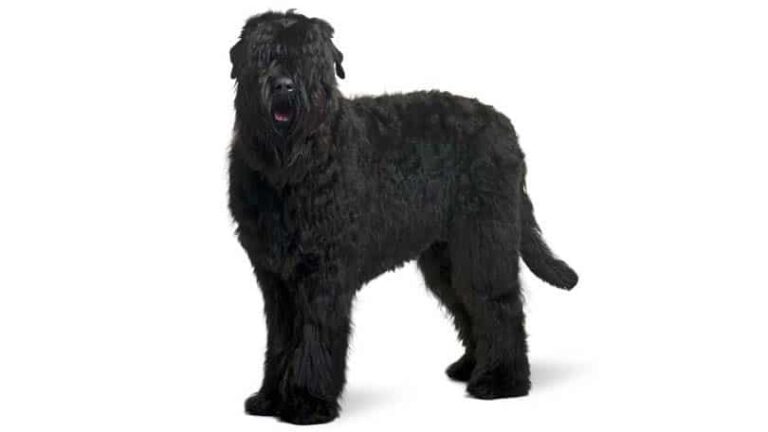Feeding a Pregnant Dog
Breeders tend to worry so much about their dogs that the subject of feeding a pregnant bitch has become very complicated. But it doesn’t have to be. Here are the things you need to know.
First of all, many people tend to overfeed their dogs during pregnancy, especially at the beginning of the pregnancy, which results in bitches gaining too much weight without a good reason. It’s important for your bitch to be in good condition so she can deliver her puppies without problems and that means that she should not be overweight.
Start by feeding your dog good quality food and a balanced diet prior to breeding. If you feed kibble, a good quality diet consists of dog food that has named protein sources, such as chicken, lamb, or beef, in the first five ingredients. Avoid foods that have generic protein sources and by-products such as meat by-products or animal digestion. You should also avoid foods that rely heavily on grains in the first five ingredients, especially corn. Corn, in various forms, is often used as a cheaper protein source and dogs are not able to digest it as well as meat protein. Look for foods without preservatives or which use natural preservatives, such as vitamin E. Avoid foods with sweeteners, food coloring and artificial flavorings. In short, feed your bitch a good quality food.
Right after breeding your bitch you won’t be able to tell if she’s pregnant. There won’t be any obvious signs of change in your bitch’s body for several weeks. You should continue to feed your bitch the same good quality food, and the same amount of food for the first month following the breeding.
If you overfeed your dog during this first month she will gain weight which can make delivery more difficult later on. This extra weight can lead to complications during delivery.
Around the third week after breeding your bitch may lose her appetite for a few days. This is when the embryos actually attach themselves to the uterine lining and there are some changes in your bitch’s hormones. Many breeders refer to this time as “morning sickness” but there isn’t usually any vomiting. Instead, your bitch may simply have a lack of appetite. As long as your bitch is eating a little she will be all right. Her appetite will return in a few days. If she goes more than a day or two without eating anything at all you should take her to the vet.
During the last month of pregnancy the puppies will be growing fast. They will need a lot of nutrients. This is when you will need to start feeding your bitch more. You should gradually increase your dog’s food by 25 to 30 percent by the time she delivers the puppies. By her due date she should weigh about 25 to 30 percent more than her normal weight. If your dog normally eats 1 cup of food twice a day, by the time she delivers her puppies she should be eating 2 1/2 to 2 2/3 cups of food divided into several small meals.
As your bitch gets closer to her due date it’s also a good idea to switch her to a food that is a little richer. A growth/puppy food or a food for a nursing/lactating bitch is a good idea.
If your bitch is carrying a very large litter she probably won’t have room to eat very much at one time so be sure that you are offering her several small meals per day. Some people choose to allow a pregnant bitch to free feed and leave food down for her at all times. However, some bitches may neglect to eat so you will need to check to see that your bitch is eating enough. If your bitch isn’t eating enough, especially late in pregnancy, she could develop pregnancy toxemia.
Just before the puppies are due your bitch may cut back on eating or stop eating altogether. This is usually a sign that the puppies are due in the next 24-48 hours. You can leave food down for her but she probably won’t be interested in eating it.
Your vet may recommend giving your bitch vitamins during her pregnancy. Other veterinarians believe that bitches get all the vitamins they need from their food. Whatever you do, you should discuss vitamins and supplements with your veterinarian. Adding too many vitamins or minerals to your bitch’s diet can result in birth defects and other problems during pregnancy and labor.
Calcium, in particular, can be a problem. If you supplement your pregnant bitch with calcium during pregnancy, especially late in pregnancy, you can increase her risk of eclampsia (low blood calcium) when she starts nursing the puppies. Excess calcium can also cause other problems for the puppies and with the delivery.
Talk to your vet before giving your bitch extra calcium.
Many breeders put faith in various supplements hoping to increase their chances of their bitch conceiving a litter. One animal rights person called these supplements “fertility drugs.” The fact is that these supplements are herbs such as raspberry leaves, kelp and the like and you can find them at any health store. Are they beneficial? Do they actually increase the odds of conception? Opinions are mixed. At one time raspberry leaf tea was commonly given to both women and dogs to help them conceive but now evidence seems to suggest that raspberry leaves seems to help with contractions. So, giving a dog raspberry leaves at the wrong time could have the opposite effect than that desired.
Breeders also put faith in many other beliefs that have been handed down from generation to generation. At one time it was recommended to give pregnant dogs boiled eggs for extra protein. This doesn’t seem to do any harm. Some people cook chicken or hamburger meat for their pregnant bitches to give them extra protein. Does it help? Who knows?
The important thing to remember is that you should continue to feed your dog a balanced and nutritious diet. If the food you currently feed your dog is a good quality food then there is no reason to change it or to overfeed your dog. Remember that bitches can have problems if you overfeed them, especially early in the pregnancy. Stick with good nutrition and don’t over-supplement your pregnant bitch.

Having discovered a fondness for insects while pursuing her degree in Biology, Randi Jones was quite bugged to know that people usually dismissed these little creatures as “creepy-crawlies”.







